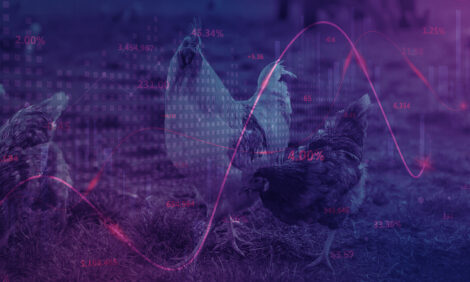



Strategies for organic chicken farming
The GreenChicken research project aims to develop sustainable feeding strategies for organic chicken farming and improve the environmental and climate impactsOrganic animal husbandry is becoming increasingly important in sustainable agriculture. Consumers are increasingly attaching importance to particularly animal-friendly husbandry - including chickens. Poultry farming faces various challenges. On the one hand, according to EU regulations, organic chickens may only be fed with raw materials that come from 100 percent organic production, which makes the supply of essential amino acids such as methionine and cysteine difficult. On the other hand, the breeding of so-called dual-purpose chickens - in which female animals are bred for egg production and male animals for meat production - is playing an increasingly important role.
This is where the GreenChicken project comes in, which is funded by the Federal Ministry of Food and Agriculture as part of the Federal Organic Farming Program (BÖL) with a sum of around two million euros over four years. The aim of the research network between Justus Liebig University Giessen (JLU), probeda GmbH and the Research Institute for Organic Agriculture (FiBL) is to develop sustainable feeding strategies for organic chicken farming and thereby improve the environmental and climate impacts. In addition, the entire life cycle from the chick through the young animal stage to the laying hen or young cockerel should be considered. Existing findings from practice and advice are taken into account in order to develop practical solutions.
The effect of different feeding strategies in mobile chicken coops at the Oberer Hardthof teaching and research facility at JLU is being investigated in field experiments. Three different breeds of chickens with different feed rations are examined throughout all feeding phases. Particular attention is paid to adaptability to different protein sources. In addition, environmental indicators such as greenhouse gas and ammonia gas emissions, water and land consumption and nitrate losses are measured and analyzed.
The agricultural science research team led by Prof. Dr. Andreas Gattinger, professor of Organic Agriculture, and Dr. Petra Engel, employee at the Professorship of Animal Breeding, is also testing new feed for organic chicken farming in the form of insect meal or processed animal proteins from beneficial insects. Approved residues from agricultural production are used to obtain feed from beneficial insects that have as little competition as possible for human nutrition.
Based on data from organic producers, animal breeding operations and feed manufacturers, a comprehensive sustainability assessment of current organic chicken farming is carried out along the entire process chain. Particular attention is paid to the evaluation of alternative feeds made from processed animal proteins from beneficial insects. Based on this, recommendations for sustainable feeding strategies are derived.
The GreenChicken project is based on the GreenDairy project, which is funded as part of the LOEWE program of the state of Hesse. Both projects aim to develop integrated plant-animal agroecosystems in order to further improve resource efficiency as well as environmental and climate impacts in organic and conventional agriculture. The JLU is thus further expanding its capacities in the area of sustainable, circular animal husbandry systems (green livestock).
Headline image courtesy of Lisa Dittrich.








